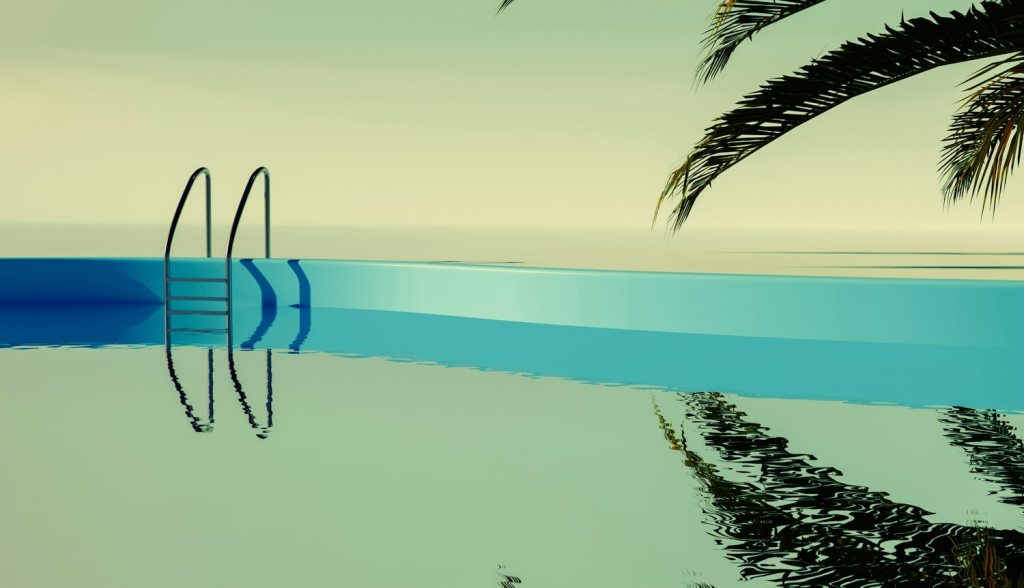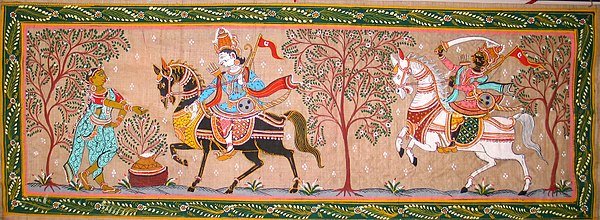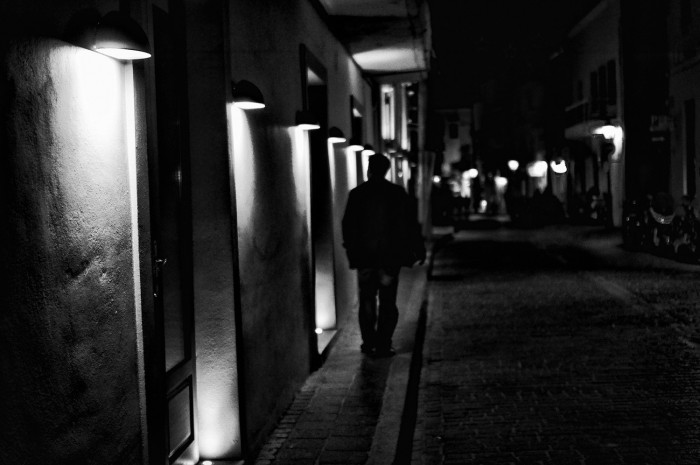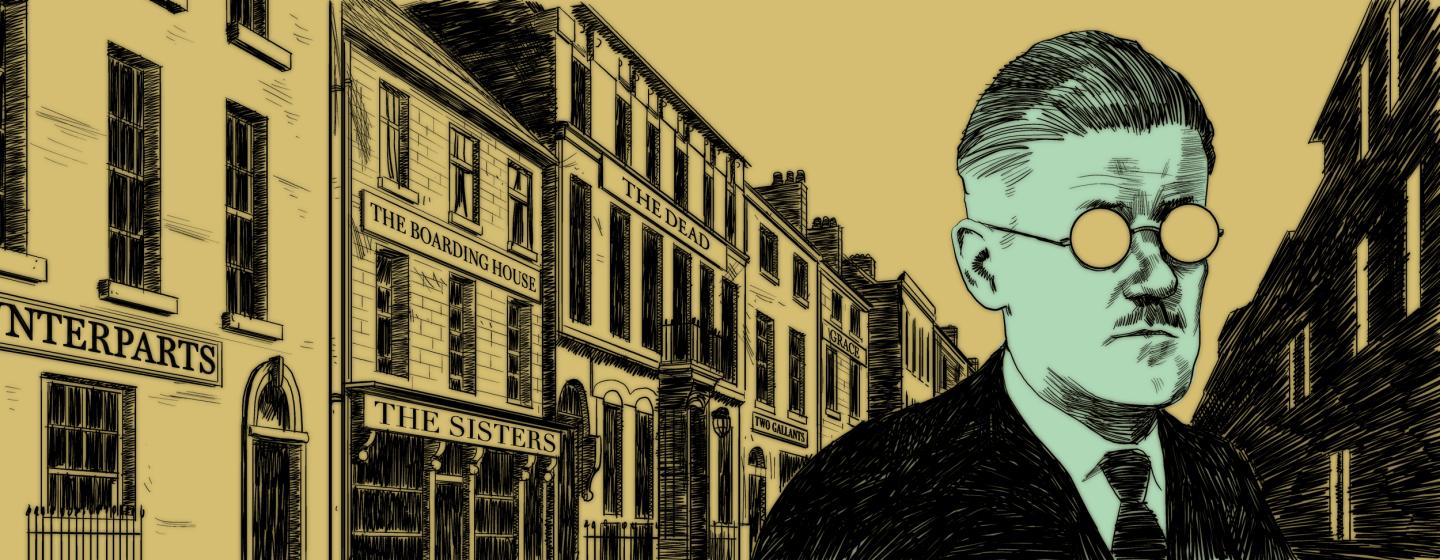Murder, serpentine stats, love, and loss.

The man in the yellow t-shirt was smiling. His eyes liquid as spirits, crooked. His glass shaking in his manos. It was cold and dark and stark as a deserted creek outside, with the fog hanging down. What would you do in this town? he kept asking me. I was feeling heady, nauseated, that feeling of being marooned in a crammed train wreck. I went to the tiny bed and crashed. Outside it was a box of a town. A few blocks straight, few blocks across, everything in between. Clean, labeled, systematic, like anal retentive chemistry labs. Stuck between a Walmart and a river. Between a never ending avenue and that river that curled around. In the morning you could see the sun glare down the main avenue as it strecthced out of its sleeping clothes. The morning light is always brilliant, and the wind cool, gentle, like a mother, like Joyce would say. And while all of this is honest, true, and convenient, none of it gets me going anymore. See there are two people writing this here. One that prefers chopping wood, cutting them, putting them together, looking at them like an old friend. The other one, has more of an alacrity, if you may, for pyromania. So he goes looking, for trouble. Of whatever trouble that can be found in those concrete entrapments, those muddy waters, and those god forsaken computer servers clonking like death pods.
Chapter 1 : White like Dublin
Splish splash. Birds merroing in the morning river. They say there are no predators in Jersey rivers, just predatory chemicals. Just logs and bakelite, sludge and turpentine. A man zoots past me in a candy suit and a duffel bag. “We’ve got a floaty, boy”. This is what it has come down to, can’t even walk a block in the mornings without the smell of CBD. There’s a body bobbing up and down the river. Making paddle noises in the metal water. It gets pulled to one side and then far to the another, like being pulled around by invisible little ghost children. My shoes were stuck on that wrought iron bridge, legs stiff like a tree. All these years I thought my eyesight was bad, now I could see a dead face 400 meters
away. I know not if distance works differently on water, apparently it does. “He so white boy”, yelled the man in the spastic suit, “He white like Dublin”. The sky burst with police pong pongs in a crammed minute. There were all kinds of officers, bald italians, mustachioed poles, scrawny asians, and nonchalant latino coppers with jambon y queso sandwiches in their hands. I couldn’t help but not forget his face. His mouth open, his eyes vacant, looking for someone that never came. We have all been there, some for the last time. I could not go on. I had to stutter back home. The tall man was getting his door knocked on by a woman. She had ink black oiled up hair, and she looked pissed. I put eggs on a hot pan and ate. College was desultory, tedious. In the evenings there would be rotating rainbow lights and dancing people in the living room that doubled up as a kitchen. Sometimes the noise would throw the roof out, and two bored police officers would come probing. And there would be the man in the yellow tshirt in the corner, smiling, calculating. Sometimes he would go to his room and box with the wifi. Sometimes he would start cooking at 3am, after everybody passed out from passing libations from hell down their useless throats. Sometimes he would get sober, once in a red victory, and he would end up telling everyone about what he liked to drink. And he would get wasted and start cooking at 3am again after everybody died from 12% abv sewerage.
Enough dilly dallying. About the body. It was floating like a friggin slipper. I was not surprised. It had been a tough year, a hard year. A year of getting thrushed in the guts by a stone hammer. The year of the bloodied fox. The year of blood exploding through veins, the year of new light and old blood in the eyes, forgiven but retained, of love, and for love. The year of the gent in the river. It’s hands were dry, white. When they took him out I could see him pale, like the grief of the eons, where could he be from? Up from the state? Or from the next town? They catered him into a holder and a bag, and into a car that ran away like a runaway jackal. The news came that no one knew. He had no ID, no phone ins, no lotteries, no lovers. What does it have felt like to live without love? We never lack of it, we give it sometimes so perfectly not to get back anything. Even though it is love from the old days, from the eons, a sphere of glow, with all the lights, and all the rhymes, and still it’s not enough. Such is life. I felt bad for that guy. News said he was murdered. Who could kill him, as it turns out anyone barely even knew him. I went out on a drive on that endless road. One minute sad, one minute happy. Sad by hope, happy by nihilism. And back at it again with blood rushes. I see dark clouds and the impending rain. When I close the eyes for a split second I see the vertical lines of light, crossing like the copier machine, blotting the paper-maiche red. I see Courier joints with middle aged men and taco caves with absolutely hot women, the dilapidated churches, and the empty pharmacies. Pharmacies with the snake logos they say belong to the doctors. Two snakes, two of a kind, intertwined. If one of them went swimming, what would the other do?
And where was the other snake? I would call in my friend at the office. Her name was Abi, Abigail. She had jet black hair and eyes like ruby. Not like I was attracted to her. Well of course I was. When she laughed it felt like the world was fair for a second. And when she would smile slowly her eyes would drop down. Where am I going with this, I got a murder to solve. So I call her up, she would confirm what I had observed. The scalp of the guy did indeed have dark patches. So Mercury poisoning was a possibility. But they did not produce or use that in the 200 mile vicinity. Hm. Mercury stocked in someone’s house? How was I supposed to find that now. It’s easier to find an Indian store in remote Paraguay, in the Chaco, whatever that is. The man was not made to drink or bathe in mercury, he was exposed to it, in an non industrial environment, over a prolonged period, deliberately. Whoever it was, they had the flag and the staff and the sword. They executed a heinous, heinous act with perfection. How do you find Mercury in basements? I breathe out. But the blood is now splling into my vision, although my best formulations I am not even putting down here. I decide to stretch my legs, I catch up with Abi at the mall. We drink sprite, eat bourbon chicken, we are friendly.
I go at it harder. I go into that thinking pool. The mentalists are there, so are the cranks and the shrinks. I dive, into pools of text, and I try to find a formula that fits the problem.

I head back home. The woman with the satin hair is fighting with the tall man now. They are fighting over her lost wallet. The first thing that floods my head is the man in the yellow shirt running away with it, intoxicated as a laboratory. But now that we all are here, we need to find it. We start to do a round of the places she visited. We go to Trader Joe’s. Trader Joe’s. The rich American persian bazaar. It’s a duet in a techno club, a garnish on a salt and pepper broth, a lifesaver on a sinking vessel. The cashiers don’t have it. Rich people in collared up shirts, male, female and androgynous hipster, buying Kombucha, not to mention the frozen Mexican and Indian meals. That is privilege you can’t pass, at least in this lifetime. That store does have some good things, though. We go to Marshall’s, teeming with the hood, rap songs on speakers. Friendly and angry people, all singing the same Ice T song, apparently. I don’t expect it to be here if it were even. Stores in the U.S are its museums. Its museums are too perfect, brimming with people trying to find meaning, you know what I mean? The museums have too much in them, they are too affluent, too full. It almost feels guilty even to set step into them. They are beautiful nonetheless, gorgeous, some of them make your heart sink like a stone. And the stores, and their myriad brands, with myriad variations, with the maze like attention to details to the packaging, they are a feast(and pestilence) not just to the stomach, but to the eyes. How do we find a wallet in a radius of 20 miles? Before it gets taken. Good Morning Vietnam is playing on the telly. We go to the nearest popular radio station, bribe(read donate) our way into making an announcement about an apparently cursed pink MK lying around town. It is at our house the next day. I am sure the Hollywood’s recent horror streak has helped. Thank you Annabelle. The tall man is relieved, the satin haired woman is happy, she is laughing on a video call with her mum.
The problem of the mercury addled basement. Wherever I swim, there are bodies. Not human bodies, but memories of people, memories of towns, memories of memories. All of us have those. We leave towns, people behind, only to find new. To again get our skin burnt and left out in those places. With those people. I go around that swim, that sea, of memories, of analysis, if you may. I find trees, I find cries for help, I find graphs, and I find heat maps. Heat maps. Of course. By mathematical theory, if there is one mercury container in X, there has to be at least half at X+100 miles or whatever. But if X is 0, that 100 can be anywhere, of course. For that we need statistics. But they don’t have statistics for mercury poisoning, at least nothing recent. For that we need neural networks. I am not going to enundate with irksome technicalities. But here is what I did. I took data on mercury poisoning symptoms, symptoms associated hitherto with other diseases, and I added them to a dataset of mortality rates. Then I find the strongest correlation, a mathematical score, if you may, and the area with the strongest correlation, pinpoints to some French sounding town called Dubois in Pennsylvania. Coal country. Always felt off about Pennsylvania, the ever winding country roads and the vegetation that always feels like it is hiding something. I can never understand it.
We drive into Dubois like war generals. As the day is breaking, crisp. We decide to visit the sick houses. We visit three dozen, in three days. No luck. Some of them are abandoned. Some teeming with life, with kids hooping upfront. Some morose, old people looking at cars going by, on their patios. Some have glistening art stores, with weird hostesses, and the houses turned to Airbnbs. The town mayor tells us coal miners have started to move to IT and remote jobs. And then there is 2023. But a lot of people have gone to the cities. The local CVS feels like an empty banquet hall. All in all, the town is empty as an empty heart, I will be honest. We get to one with a big truck that is dust covered. House 37. Clearly not driven for weeks. There are no responses to the knocks and doorbells. And we ask the neighbors around. They say they haven’t seen the couple in months. We call the police to intervene. They do break in to the house. To find no one. There are Mercury containers in the basement. And we hear someone running upstairs. The cop started running like he was out on a leash. He would finally catch on, and she would admit to slow poisoning the husband and letting him slip into muddied waters. Love pangs. It didn’t end there.
I head back to Jersey. I meet Abi over dinner. She says we can’t meet in person anymore. She says I am too attracted to her, it is obvious, and she feels nothing anymore. It is bit of a knotty situation, and she doesn’t want to do it. I feel like Jelly inside, no, I feel fully dead inside, and I decide to keep the pain and go at it harder. The sun is pouring it down on me from the West. I hate the sun now. I get reminded of Sonnet 17. As long as men can breathe and eyes can see, so long lives this, and this gives life to me. It’s the love for the ages, I dare not desecrate it, again. It’s a prayer and somebody’s kingdom, for all purposes.

This is a concise version compared to the book. To be followed by Chapter 2.








 








